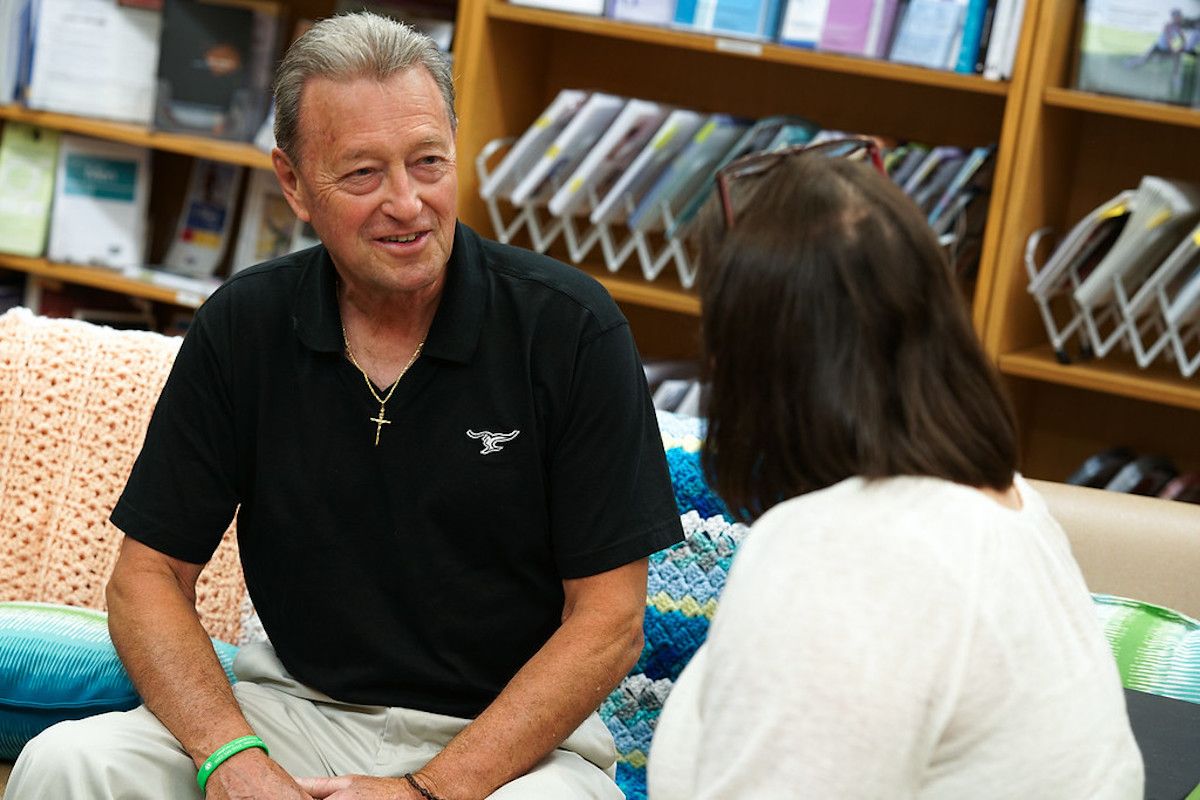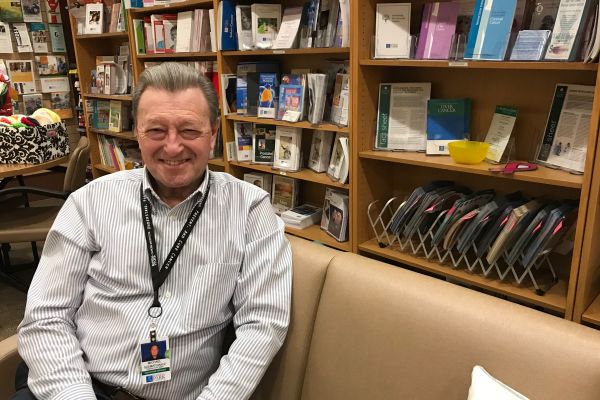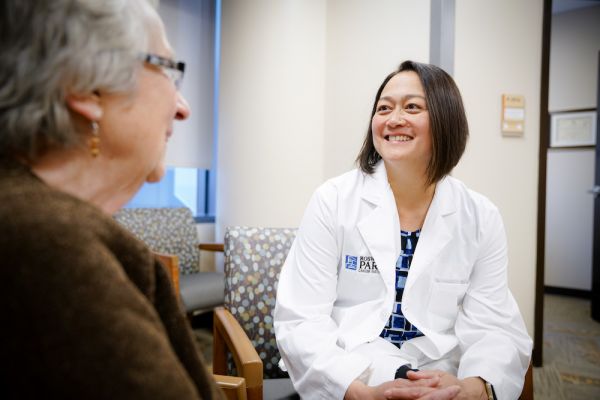Program matches coaches with new patients — and now caregivers, too!
Two years after Joan Lewis received a bone marrow transplant at Roswell Park, she decided she wanted to give back to the cancer center. At the time, going back to work wasn’t an option for her, so she became a volunteer and was placed in the Resource Center for Patients and Families.
“As a volunteer in the Resource Center, I saw firsthand newly diagnosed patients coming in and I could feel their need. You only had to look in their eyes,” she says.
Then — thanks to generous donations to the Roswell Park Alliance Foundation — last year the Resource Center management team received a Quality of Life grant to hire a part-time staff person dedicated to its Cancer Coach program. Interest had increased in the program, which matches cancer survivors with newly diagnosed patients to help them as they navigate treatment and all aspects of cancer, both physical and emotional.
Lewis was hired and began work as the program’s project coordinator last May.
“Since I started, I have increased the number of patients matched with coaches from one per month to more than eight per month. That’s the difference in having a dedicated person for this program. The need is there and we are now better able to assist our patients.”
The program pairs survivors with patients based on several factors, including the type of cancer they have, the cancer stage, gender and age. Cancer coaches must have completed treatment at least two years prior to joining the program.
The Roswell Park program is open to all cancer patients free of charge — even those who are not being treated at Roswell Park.
Lewis says cancer survivors know firsthand the impact of a cancer diagnosis, so they offer valuable companionship to current patients. The program trains them to provide comfort, support and practical information — not medical advice.
“I am usually able to set up an imperfect perfect match. I can’t match people exactly because though they may have a similar diagnosis, the treatments are always individualized. And I don’t have coaches to cover every type of cancer,” Lewis says, adding that most of the coaches and patients are breast cancer survivors, and “after that, it’s across the board” for the types of cancer.
Roswell Park patients need only fill out a form if they are interested in having a cancer coach. There are 75 active coaches, according to Lewis, and the Resource Center is always recruiting more. As part of her job, Lewis also arranges orientations, trainings and annual meetings for the program.
Lewis says patients often are eager for a cancer coach.
“They sometimes just need to see someone who survived. After I talk with them, they look at me and say ‘Really?’ You see the relief on their faces. They sometimes just need to learn that it is possible.”
And the coaches themselves “sometimes get more out of this than the patients.”
This year, Roswell Park will expand the program to offer coaches for caregivers too.
“We see every day the difficulties that patient caregivers go through caring for their loved ones while keeping their own lives in order,” Lewis says. “We now will accept applications for volunteer caregiver coaches and will connect them with patient caregivers as the database grows.”
For more information on the Cancer Coach Program, please contact Richard Satterwhite at 716-845-1609, or by emailing Richard.Satterwhite@RoswellPark.org.
The Resource Center for Patients and Families
Interested in becoming a cancer coach at Roswell Park?


